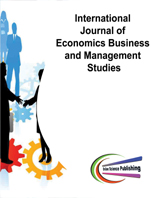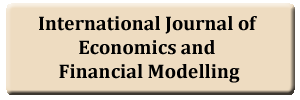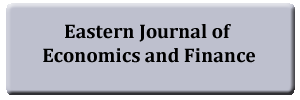External Financing and Industrial Growth in Nigeria
DOI:
https://doi.org/10.20448/802.61.180.193Keywords:
External financing, Industrial output, Foreign direct investment, External loans, Remittances, Contract intensive money, Gross fixed capital formation, Industrial energy consumption.Abstract
This study examined the potential of external financing in spurring industrial growth in Nigeria within the period of 1985-2018. The study used Industrial Output (INDO), External Loans (EXL), Foreign Direct Investment (FDI), Remittances (RIMT), Gross Fixed Capital Formation (GFCF), Industrial Energy Consumption (IEC) and Contract Intensive Money (CIM) as variables in estimating the relationship. The study hinged on Great Big Push Theory and Kaldor’s First Law and adopted the Autoregressive Distributive Lagged (ARDL) bound approach as the estimation technique. The findings revealed that, a positive relationship exists between EXL and INDO while FDI and RIMT exerts a negative effect on industrial growth. The control variables further showed that GFCF, IEC, CIM exerts positive influence on industrial growth. Since only EXL exerts positive influence on INDO, the study concludes that external financing (that is, FDI and RIMT) has not yielded the desired effect on industrial growth in Nigeria. The study recommended amongst others that; public-private partnership, is necessary to spur the industrial sector activities with strong institutional setup.




